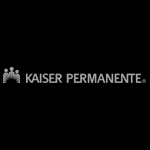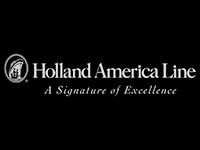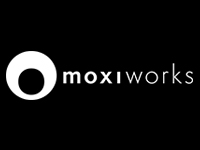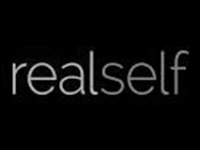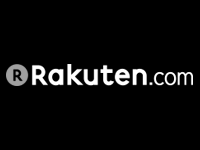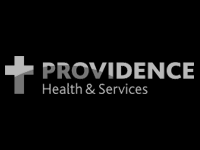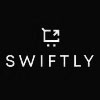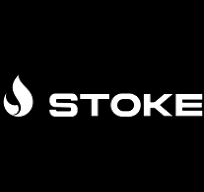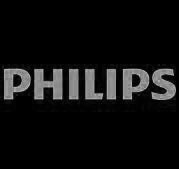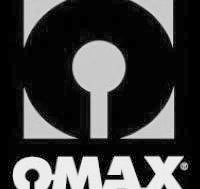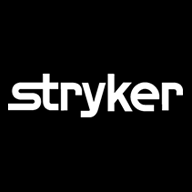Archives
Archives
West500 Partners is a boutique firm specializing in recruiting technology professionals (direct placement and contract). We are growing and seeking an experienced Technical Recruiter to join our team. Please review the requirements below and, if interested, send your resume, compensation requirements, and a short statement highlighting your recruiting philosophy and what you love about our industry to [email protected]. Qualified candidates should meet the following requirements:
- Minimum of 3 years experience (preferably in an agency setting) recruiting for software/web technology positions.
- Excellent verbal and written communication.
- Demonstrated success working a full lifecycle recruiting desk: sourcing, qualifying, submittals, offer negotiations, and closing.
- Self-motivated and directed, highly organized, results oriented, and understands how to ultimately close deals.
- Enjoys working in a small organization with a lot of autonomy and accountability.
- Appreciates, practices, and understands the importance of excellent customer service, high professional standards, enjoying your work.
- Genuine interest in technology
West500 Partners has operated since 2007 and provides a premium recruiting experience to our clients and candidates. Our client portfolio includes numerous early stage technology companies, established growth companies, and successful enterprises. At West500, you will work closely with the managing partners and have the opportunity to make a significant impact to the business every day.

Have you allowed your candidate to go sour by taking too much time? (image courtesy of Takepart.com)
Admittedly, I am a grumpy old man at times and in the world of recruiting, there are numerous opportunities to turn my Aggravation Meter up to 11. One such Whiskey Tango moment involves allowing a candidate to die on the vine, so to speak. Yes, candidates have a shelf life and if hiring managers and recruiters do not pay enough attention, your candidate may expire before your eyes and well before you would prefer. Unfortunately, I have seen too many clients lose amazing candidates due to their inability to move them through their process quickly enough in order to get a good look. It is even more painful when said candidate goes to work for a competitor knowing that they had a shot at them.
Taking into consideration there is a typical back-and-forth dance that occurs between candidate and employer once a viable candidate has been submitted, it’s important to remain cognizant of the elapsed time once the résumé hits the hiring manager’s/internal recruiter’s desk. There’s no need to circumvent your process, but perhaps a greater sense of urgency is necessary and prudent, particularly if you have been losing good candidates in a hot market. There is no excuse for losing a great candidate due to taking too much time to decide. Here are some tips for employers to keep in mind to ensure you don’t let a good one slip away:
Résumé intake. Assess your process for receiving résumé submittals, whether through your ATS portal, general recruiting email account, or third-party recruiters. Prioritize your sources and have a dedicated person assigned to do the initial review in a timely manner because the clock starts ticking as soon as the résumé hits your desk or system, notwhen you start your review. If you have an established and trusted relationship from a credible source, kick the résumé up the priority chain and give the candidate their proper due diligence. These candidates have already been pre-screened and ostensibly have passed the sniff test. You are doing your referral sources and recruiting partners a disservice if you do not give these résumés the special treatment and time they deserve. With your trusted sources, you want to reinforce their behavior of sending candidates your way. Provide feedback within 2-3 business days. It’s good business and will also ensure your high-quality candidate pipeline continues.
Interview process. Without compromising your organization’s vetting process, do the best you can to trim the fat and keep the time and effort required on all sides to the bare minimum. Fast and agile should be your mantra, all the while maintaining control of your corporate standards for hiring. Your interview team will thank you and so will your candidates. Ideally, keep it to one or two rounds and in-person. Fundamentally, I do not believe in phone screens simply because the ROI is not there, relative to in-person meetings. Unless the candidate is physically not able to meet in person because they are located thousands of miles away, it is in your best interests to lay eyeballs on a candidate from the get-go. You can obtain so much information from meeting in person, even after 30 minutes: personality, communication, facial expression, presence, details and intangibles you cannot glean through the cheap-ass microphone and receiver on your phone. If you are going to invest the time to interview a candidate, have them come to your office and get the most out of the time spent. Any candidate worth their salt will be more than willing to come to you and meet. And lastly, be on time for your interviews. If you think you are pissed and have a negative impression on a candidate that is late to an interview, just remember it goes both ways.
Interview team. As part of my value proposition as a recruiter, I will occasionally provide advice on whom should be involved on the interview team, particularly if I have a longstanding relationship with my client. At times, I have even insisted that certain members be removed from the team. It really is that critical. If you’ve done recruiting long enough, you will know that the makeup of the interview team can make or break the process and potentially set the organization up for failure. You are only one mis-speak or disgruntled employee away from scaring away a great candidate. Like a highly trained and specialized military ops team, keep the team small, agile, and focused. The makeup of the team should comprise of representatives of your org and department that have the experience, technical aptitude, and personality to qualify as well as speak to the merits of the company in a positive light. There are two key objectives your interview process should accomplish: qualifying and selling the candidate. Most organizations focus on the former and give short shrift to the latter. Keep in mind that unless your standards are the equivalent of Justin Bieber’s fan base, any candidate that is worthy of hiring is likely already employed and/or in high demand elsewhere. You need to vet but you also need to sell if you want to be on the winning side of the the mental-calculus equation that is likely running through the candidate’s mind. Believe you me, if you think the candidate looks hot (metaphorically), there are a dozen other suitors who think the same. Remind members of your interview team to not only qualify but to keep their recruiting/marketing hats on to help paint the vision of why Acme Corporation is the best place in the world to spend the majority of a candidate’s waking hours. Doing so will keep the candidate engaged and buy you time to do your due diligence.
Decision-making. Set standards and expectations to obtain feedback from the interview team in a timely manner (within 1-2 business days). Ideally, you will have a prescribed format or list of questions to complete and collect. Uniformity in the type of information, impressions, and ultimately a thumbs-up/down vote will help facilitate your decision-making on whether to move forward with an offer. If your process is tight and formal, your ability to hire will in turn be smooth, calculated, timely, and based on informed decision making.
Follow-through. After your final decision has been made, provide every candidate an appropriate response, particularly those you have rejected. Nobody likes to be left hanging. It’s in your best interest to provide the best possible candidate experience. For one, it is the right way to do business. Secondly, every rejected candidate has associates and friends. They will tell these associates and friends of their experience interviewing with your organization and ideally, they will speak highly of their experience. This will go far in polishing your brand and attractiveness as a potential employer in the community.
It’s important to keep in mind that each step in your process and each additional person you involve on the interview team adds complexity and time, two factors that will act negatively and add drag to your process. Remember all candidates require feedback and caring to remain viable. Don’t let them die on the vine with neglect and lack of attention. A lean and agile process will ensure you keep viable candidates engaged until you are ready to make your final decision. Hiring and interviewing is a necessity. It is in your best interest to keep your candidates fresh and engaged. If you don’t, another organization will.

